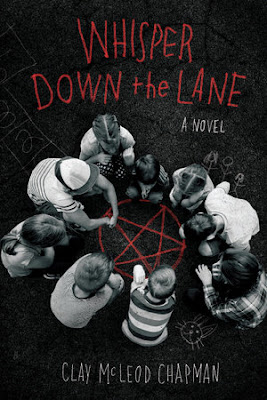My Q&A with the author:
How much work does your title do to take readers into the story?Visit Trish Doller's website.
The original title for the book was Apparent Wind, which is an esoteric term regarding the speed of the wind that's hard enough to explain to sailors, let alone to the general public. When I was considering more accessible titles, I remembered that a float plan is something American boaters are supposed to file with the Coast Guard (or with a reliable friend) in case the boater doesn't make their destination. I wondered how many boaters actually file a float plan, and that started me thinking about Anna's journey. In Float Plan, I think the word "float" does most of the heavy lifting until readers get into the story and realize Anna doesn't have much of a plan.
What's in a name?
Anna got her name from a song by Counting Crows called "Anna Begins." The song has no connection to the book; it's just a favorite song that made me love the name. But since the very beginning, Float Plan has been a project very close to my heart, so it seemed fitting to give my main character a name I love.
How surprised would your teenage reader self be by your new novel?
Present me and teenage me have a lot in common when it comes to reading tastes. I wrote Float Plan because it's the novel I wanted to read, so I think teenage me (who wrote in secret) would be thrilled--not only that it was published, but that I wrote about something we both really like.
Do you find it harder to write beginnings or endings? Which do you change more?
Most of the time, beginnings are easier for me because I tend to start with an emotional bang. But it was a little different with Float Plan because the original manuscript started in the wrong place. I keptclinging to the notion that readers needed all of that information. When I cut the beginning and put Anna on the boat much sooner, the urgency became immediate and the energy of the book changed.
Do you see much of yourself in your characters? Do they have any connection to your personality, or are they a world apart?
I think there's a tiny bit of me in every character. It may not be something recognizable to the general public or that I've talked about widely. Anna in Float Plan is not me, but there are elements of her pain that I have experienced in my own life--and I'm still learning how to be a better sailor, too.
What non-literary inspirations have influenced your writing?
I get inspiration from places I visit, things that happen in the world around me, and people I meet in real life, but music has the biggest influence on my work. As I mentioned earlier, music gave me the name of a main character. I've written a book based on the way a song makes me feel whenever I hear it. I've listened to a single song on repeat while writing a scene because it helped me channel the anguish the character needed. I make playlists for all of my books, filled with songs that reflect the characters, settings, plot, and emotions.
Coffee with a Canine: Trish Doller & Cobi.
My Book, The Movie: Float Plan.
--Marshal Zeringue






























